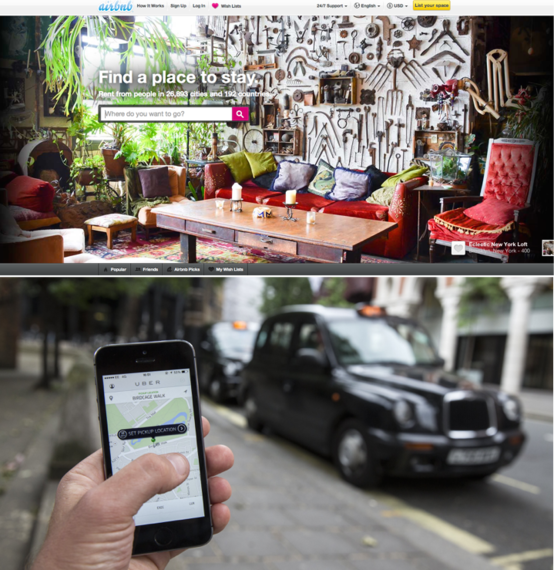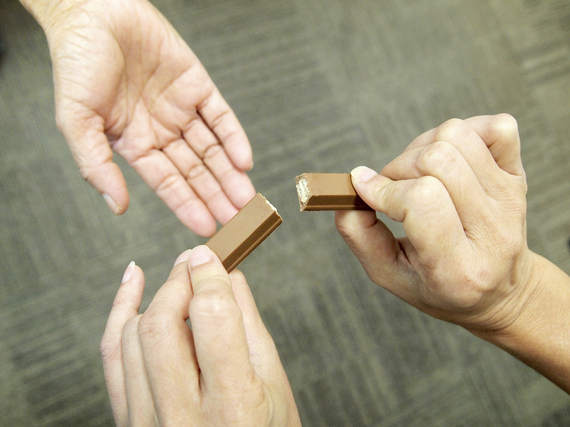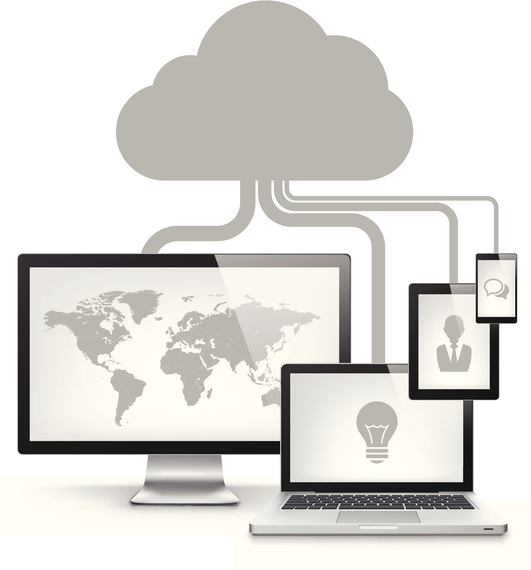Earlier this year, my friend decided that 2015 was the year to be more social.
I want to become more open with people, I tend to shy away from getting too close too soon.
A first step toward this gesture of self-improvement was made easy by Airbnb. She diligently checked reviews, and booked a solo apartment in a foreign city, this was a big change for her as she'd always opted for the comfort and reassurance of staying at a hotel.
Services like Uber and Airbnb have disrupted the travel and hospitality industries, and we've learnt to associate these companies with ballsy business models that have delighted travelers, but upset hotels and cabs around the globe. While they get 5 stars for being bold, and probably a lot of press for it, what is also worth focusing on is how they have impacted social norms and changed the way we view travel and mobility. More importantly, they have created micro-communities, which open up our horizons by providing us with a means to increase our trust in strangers. It seems, in fact, that these technologies are making our global community even tighter.
The shortened six degrees of separation.
When choosing a roommate or even a partner, we have tended to favour a pre-vetted candidate. That "friend of a friend" who we can relax around and stop that nagging feeling that crops up and convinces us that behind the polished façade lies a terrible threat.
Shared economy apps pioneered by the likes of Airbnb, and now increasing by the minute, have shortened those six degrees of separation. In fact, it has been shown that it only takes three to four good reviews to persuade someone to trust something, and a review from someone you know, even tangentially, is even more valuable. So, logging on to Airbnb, and skimming through three positive reviews of a place, causes us to relax, and we start trusting what we see, even though the reviews were written by absolute strangers who may have very different standards to our own.
The enhanced ability to trust.
In a utopian world where we all liked and respected each other, these services wouldn't need to pre-vet members or even post reviews, but in the absence of that truth, they still need to earn our trust and hold us accountable for the happiness and safety of others: Payment is guaranteed through a third party, checks on background via IDs, mutual reviewing systems and a connection to social networks wherever relevant. These are all innovative ways of reassuring us, and they seem to work. Arguably, Tinder, with its ability to locate those near you, would never have been as widely accepted without these new trusting parameters we are exposed to daily. Testament to this new way of evaluating what we should and shouldn't trust is the rise of services like Appthority, which analyses apps for security issues.
The permanent record and incentives to perform.
Making sure that your apartment is guest-ready and that your car smells like sweet mandarin and lime may not be something you do regularly, but when the incentive is cash, you somehow find the time to get it done. Add to it the fact that you'll be evaluated for it, and suddenly the perfectionist in you comes out.
If my guest has a crappy experience, it's documented forever.
The permanence of records online adds another layer of accountability and makes sure everyone puts in the right amount of effort to preserve their reputation.
In thinking about the disruption that shared economy apps have caused within the service industry, it's easy to see why hotels or cabs continue to complain and find ways to stop these businesses from taking over their own. But, what stands out most is what they have done for us humans, the way we view each other, our interaction with strangers and how far we'll trust sleeping or driving in close proximity to someone who we may never have met before. While this carries some risk, technology in this context has served to expand our worlds but also make them smaller at the same time.
After my friend returned from Prague, I asked how she got on with her new found acceptance of strangers.
Well, much better than expected! My host even gave me a tour of the neighbourhood, which was really sweet! But, I still propped a dresser in front of the door before going to sleep, you know, because one never knows.



